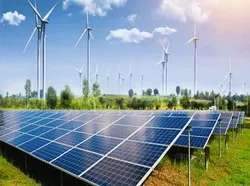West Africa is witnessing a transformative energy project as Benin prepares to construct four solar power plants that will supply clean electricity to approximately 50,000 households, marking the country’s first major independent renewable energy initiative.
AXIAN Energy, a pan-African renewable energy developer, together with its partner SIKA Capital, announced the €45 million project in late August, following five years of preparation in close collaboration with Benin’s government, local authorities, and communities across the country.
The four solar facilities will be strategically located in Bohicon, Parakou, Djougou, and Natitingou, cities selected for their solar radiation potential and their role in structuring the national grid. With a combined capacity of 50 megawatts, the plants represent a significant step toward addressing Benin’s persistent energy challenges.
Tchegnon Amoussou, Chairman of SIKA Capital, emphasized the project’s broader significance beyond just electricity generation. He noted that this initiative demonstrates Benin’s attractiveness for infrastructure investment and expressed delight at partnering with AXIAN Energy to develop facilities that will support the nation’s ambition to expand renewable energy production.
Benjamin Memmi, CEO of AXIAN Energy, described the project as a decisive milestone for Benin and their shared vision of making renewable energy accessible to as many people as possible. He stressed that working alongside Sika Capital and Beninese authorities, they aim to lay the foundations for a more inclusive and resilient energy future for the country.
The financial structure backing the project reflects strong institutional confidence. Out of the total €45 million investment, €35 million will be provided by two leading development finance institutions, though the organizations have not been publicly named. This substantial financing underscores both the project’s viability and its expected impact on Benin’s economic and social development.
The initiative aligns directly with Benin’s national energy objectives. The country aims to achieve approximately 24.6 percent renewable energy in its energy mix by 2025 and 44 percent by 2030, with longer-term ambitions for universal electricity access by 2035. The four solar plants will directly contribute to these targets while helping reduce the nation’s dependence on fossil fuels and imported electricity.
Benin’s energy situation highlights the urgency of such projects. Almost two thirds of the population remain without electricity access, equating to 1.44 million unelectrified households. The disparity between urban and rural areas is particularly stark, with rural electrification rates remaining critically low.
The project will be implemented in close partnership with Benin’s energy sector operators. The Société Béninoise de Production d’Electricité (SBPE) and Société Béninoise d’Énergie Électrique (SBEE) will play central roles in integrating the electricity generated into the national grid. Meanwhile, the Ministry of Energy, Water and Mines along with the Ministry of Economy and Finance are actively supporting the initiative, ensuring full alignment with national energy priorities.
This development comes as West Africa grapples with significant energy access challenges. Regional electricity access rates hover around 42 percent, leaving roughly half the population without power. Yet energy demand continues surging, driven by rapid population growth and economic expansion across the sub-region.
Ghana, Togo, Senegal, Burkina Faso, Nigeria, and Guinea have already made substantial investments in renewable energy, particularly photovoltaic solar power. These countries recognize that solar energy offers a viable pathway to energy independence given West Africa’s abundant sunshine, which provides tremendous untapped potential for solar power generation.
The strategic shift toward renewable energy carries multiple benefits beyond expanding access. Clean electricity production helps countries reduce carbon emissions, contributing to global climate change mitigation efforts. It also enhances energy security by reducing dependence on imported fossil fuels and exposure to volatile international energy markets.
For Benin specifically, the solar project represents progress toward energy self-sufficiency and inclusive economic growth. Reliable electricity access is fundamental to supporting businesses, improving healthcare and education services, and enhancing quality of life for citizens who have long lived without power.
However, challenges remain. Developing sustainable energy infrastructure across Africa requires continued financial support and investment from both public and private stakeholders. The successful implementation of Benin’s four solar plants could serve as a model for similar projects throughout the region, demonstrating how strategic partnerships between African governments, private developers, and international financial institutions can deliver tangible improvements in energy access.
The project timeline extends over the coming years as the four facilities move from planning through construction to eventual operation. Once completed, they will represent a permanent addition to Benin’s energy infrastructure, providing clean power for decades while supporting the country’s transition away from fossil fuel dependence.
As West Africa continues confronting its energy access deficit, initiatives like this solar project in Benin illustrate both the scale of investment needed and the growing commitment from governments and private sector partners to address one of the continent’s most pressing development challenges.
Source: newsghana.com.gh










